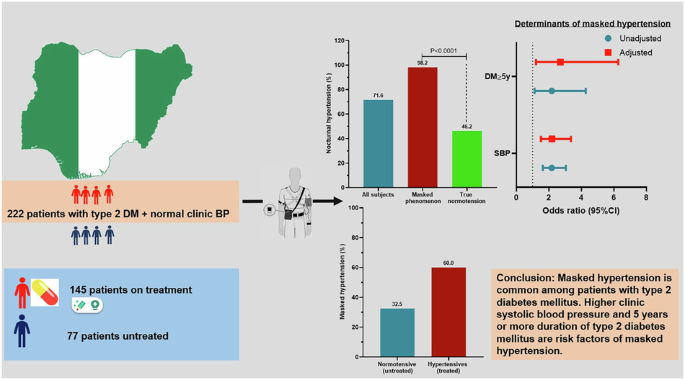A new peer-reviewed study in the INFORMS journal Marketing Science finds that direct-to-consumer (DTC) advertising for prescription smoking-cessation drugs meaningfully reduces cigarette use. At the same time, the research found…
Blog
-

Quantum Science Information | AZoQuantum.com
Terms
While we only use edited and approved content for Azthena
answers, it may on occasions provide incorrect responses.
Please confirm any data provided with the related suppliers or
…Continue Reading
-

Security forces killed 6 indian backed terrorists in Dalbandin, Baluchistan
DALBANDIN: Security forces successfully eliminated six Fitna-al-Hindustan terrorists during an operation in Dalbandin, Chagai district, Balochistan.
As per security forces sources, the terrorists had taken refuge in a cave under continuous aerial…
Continue Reading
-

Powering the Next Space Age
Government ambitions in space are approaching what some may still think of as science fiction. In August 2025, NASA set a 2030 target for construction of a lunar nuclear reactor to support the US-led and EU-supported Artemis program’s plan for a permanent moon base. While this target faces significant technical and financial challenges, it reflects a real sprint to outcompete autocratic rivals. China and Russia are coordinating on a similar “International Lunar Research Station” powered by a nuclear reactor for completion in the mid-2030s.
Emerging technologies are key drivers of this new space race. Analysts with experience at the European Space Agency, NASA, MIT, and in the private space sector argue that these technologies could make a cislunar economy—economic activity spanning Earth, the Moon, and the space between—feasible by mid-century, though experts debate when key capabilities will mature. Key technologies include:
- artificial intelligence (AI), which could facilitate autonomous in-space servicing and assembly (ISAM), enabling individually-launched modular components to self-assemble into mega-structures such as next-generation telescopes and orbital refueling stations. Even factories could be built this way, leveraging microgravity and space extremes to produce items impossible to make on earth, with applications in fiber optics, semiconductors, and novel materials. The first pieces of this world are already here: US-based Varda Space Industries uses microgravity for biopharmaceutical drug development.
- quantum technologies, which could safeguard military and commercial data in space using a network of quantum-encrypted satellites. Space-based atomic clocks developed by the European Space Agency could synchronize these systems and allow greater autonomous navigation in deep space. Emerging quantum sensors measure tiny gravitational fluctuations to identify more-and-less dense materials below the Earth’s surface, enabling satellites to map aquifers and critical mineral deposits. The same measurements could identify high-value sites for mining on the Moon.
- biotechnologies, which could be key to sustaining long-term human activity in cislunar space. Researchers are engineering lightweight, self-healing composites made from fungi to serve as radiation shields for space stations and Moon bases. Near-future synthetic biology applications could reduce the need to resupply space habitats through the use of bioregenerative life support systems that generate oxygen and food.
The United States and the EU already support these industries; the EU’s draft Space Act and the Trump administration’s August executive order on commercial space development each signal backing for the industry. Yet, staying ahead of China demands more. Allies should leverage complementary strengths by investing in each other’s commercial space sectors and reducing barriers to integrating advanced capabilities. These steps will not suffice by themselves, but they would materially boost competitiveness—positioning the United States and the EU to outpace China and unlock the cislunar economy.
Continue Reading
-

Humans Evolved Fastest Amongst Apes
Humans evolved large brains and flat faces at a surprisingly rapid pace compared to other apes, likely reflecting the evolutionary advantages of these traits, finds a new analysis of ape skulls by UCL researchers.
The paper, published in the…
Continue Reading
-

Prevalence and determinants of masked hypertension among patients with type 2 diabetes mellitus
Franklin SS, O’Brien E, Thijs L, Asayama K, Staessen JA. Masked hypertension a phenomenon of measurement. Hypertension. 2015;65:16–20.
Google Scholar
Williams B, Mancia G,…
Continue Reading
-

IHC suspends verdict for LG polls in four months
– Advertisement –
ISLAMABAD, Oct 22 (APP):A division bench of the Islamabad High Court (IHC) on Wednesday suspended the verdict of single member bench regarding holding of local body elections in federal capital within four months.
The division…
Continue Reading
-

Hashimoto Daiki claims third men’s all-around crown
Japan’s Hashimoto Daiki captured the men’s all-around gold medal Wednesday evening (22 October) at the 2025 World Gymnastics Championships in Jakarta, Indonesia.
The 24-year-old earned a total score of 84., holding off an impressive challenge…
Continue Reading
-

Apple and Google may be forced to change app stores
The way we download apps onto our phones could be about to change after a ruling from the UK’s competition regulator.
The Competition and Markets Authority (CMA) has designated Apple and Google as having “strategic market status” – effectively saying they have a lot of power over mobile platforms.
This means the two tech giants may have to make changes, after the CMA said they “may be limiting innovation and competition”.
The ruling has drawn fury from the tech giants, with Apple saying it risked harming consumers through “weaker privacy” and “delayed access to new features”, while Google called the decision “disappointing, disproportionate and unwarranted”.
“We simply do not see the rationale for today’s designation decision,” Google competition lead Oliver Bethell said.
But the CMA said it did not “find or assume wrongdoing” from the firms.
“The app economy generates 1.5% of the UK’s GDP and supports around 400,000 jobs, which is why it’s crucial these markets work well for business,” said Will Hayter, the CMA’s executive director for digital markets.
The investigation into Apple and Google’s app stores, browsers and operating systems focused on how prominent their own apps are compared with rivals.
“Around 90-100% of UK mobile devices running on Apple or Google’s mobile platforms,” the CMA has previously said, adding this meant the firms “hold an effective duopoly”.
According to analysis from Uswitch, 48.5% of UK users have an iPhone – which runs Apple’s iOS operating system (OS) – with the vast majority of the rest using Google’s Android OS.
It comes after a separate decision taken in October, where the CMA designated Google’s search division as having strategic market status.
It is unknown exactly what changes the regulator will look to request, but in July it published roadmaps outlining potential measures it would take if the firms were found to have strategic market status.
These include requiring it to be easier for people to transfer data and easily switch between Apple and Android devices, and for both firms to rank apps “in a fair, objective and transparent manner” in their app stores.
Apple specifically may be required to allow alternative app stores on its devices, and let people download programs directly from companies’ websites.
Such a move would be a significant change to the so-called “closed system” which has defined iPhones since their inception, where apps can only be downloaded from Apple’s own App Store.
Both of these things are currently possible on Android devices – but the roadmap said Google may have to “change the user experience” of downloading apps directly from websites, as well as “remove user frictions” when using alternative app stores, such as listing them directly on the Google Play Store.
Android is an open-source operating system, which means developers can use and build on top of it for free.
Google argues this means it opens up competition.
Mr Bethell said “the majority of Android users” use alternative app stores or download apps directly from a developer’s website, and claimed there is a far greater range of apps available for Android users compared to those on Apple devices.
“There are now 24,000 Android phone models from 1,300 phone manufacturers worldwide, facing intense competition from iOS in the UK,” he said.
Meanwhile, Apple warned the UK could lose access to getting new features – as has happened in the EU – which the company blames on tech regulation.
For example, some Apple Intelligence features which have been rolled out in other parts of the world are not available in the EU.
“Apple faces fierce competition in every market where we operate, and we work tirelessly to create the best products, services and user experience,” the company said in a statement.
“The UK’s adoption of EU-style rules would undermine that, leaving users with weaker privacy and security, delayed access to new features, and a fragmented, less seamless experience.”
But consumer group Which? said curbs on these companies’ power in other countries “are already helping businesses to innovate and giving consumers more choice”.
“Their dominance is now causing real harm by restricting choice for consumers and competition for businesses,” said its head of policy and advocacy Rocio Concha.
Continue Reading
-

Netflix Expands KPop Demon Hunters With Mattel, Hasbro Deal
This article first appeared on GuruFocus.
Netflix (NASDAQ:NFLX) is taking its hit animated film KPop Demon Hunters off the screen and into the real world, partnering with Mattel (NASDAQ:MAT) and Hasbro (NASDAQ:HAS) to bring fans an entire…
Continue Reading
